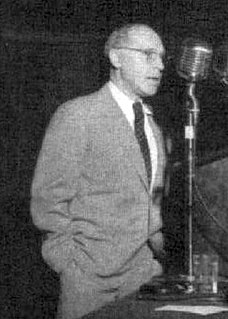A Quote by Thomas Merton
Each particular being, in its individuality, its concrete nature and entity, with all its own characteristics and its private qualities and its own inviolable identity, gives glory to God by being precisely what He wants it to be here and now, in the circumstances ordained for it by His Love and His infinite Art.
Related Quotes
There exists an infinite, eternal Being, subsisting of himself, who is one without being alone; for he finds in his own essence relations whence, with the necessary movement of his life, results the absolute plenitude of his perfection and his happiness. A Being unique and complete, God suffices to himself.
I know now that he who hopes to be universal in his art must plant in his own soil. Great art is like a tree, which grows in a particular place and has a trunk, leaves, blossoms, boughs, fruit, and roots of its own. The more native art is, the more it belongs to the entire world, because taste is rooted in nature. When art is true, it is one with nature. This is the secret of primitive art and also of the art of the mastersMichelangelo, Czanne, Seurat, and Renoir. The secret of my best work is that it is Mexican.
Does the open wound in another's breast soften the pain of the gaping wound in our own? Or does the blood which is welling from another man's side staunch that which is pouring from our own? Does the general anguish of our fellow creatures lessen our own private and particular anguish? No, no, each suffers on his own account, each struggles with his own grief, each sheds his own tears.
Individuality in universality is the plan of creation. Each cell has its part in bringing about consciousness. Man is individual and at the same time universal. It is while realising our individual nature that we realise even our national and universal nature. Each is an infinite circle whose centre is everywhere and circumference nowhere. By practice one can feel universal Selfhood which is the essence of Hinduism. He who sees in every being his own Self is a Pandita (sage).
In the work of art the truth of an entity has set itself to work. ‘To set’ means here: to bring to a stand. Some particular entity, a pair of peasant shoes, comes in the work to stand in the light of its being. The being of the being comes into the steadiness of its shining. The nature of art would then be this: the truth of being setting itself to work.
God is beyond definition. But according to one's own vision or receptivity, one will define God in one's own way. Some will say that God is all Love. Others will say that God is all Power. Each one will see God according to his own necessity, his own receptivity and, finally, according to the way God wants him to see the ultimate Truth.
There is no permanent status quo in nature; all is the process of adjustment and readjustment, or else eventual failure. But man is the first being yet evolved on earth which has the power to note this changefulness, and, if he will, to turn it to his own advantage, to work out genetic methods, eugenic ideas, yes, to invent new characteristics, organs, and biological systems that will work out to further the interests, the happiness, the glory of the God-like being whose meager foreshadowings we the present ailing creatures are.
When a man is in God's grace and free from mortal sin, then everything that he does, so long as there is no sin in it, gives God glory and what does not give him glory has some, however little, sin in it. It is not only prayer that gives God glory but work. Smiting on an anvil, sawing a beam, whitewashing a wall, driving horses, sweeping, scouring, everything gives God some glory if being in his grace you do it as your duty.
A priest is a man vowed, trained, and consecrated, a man belonging to a special corps, and necessarily with an intense esprit de corps. He has given up his life to his temple and his god. This is a very excellent thing for the internal vigour of his own priesthood, his own temple. He lives and dies for the honour of his particular god. But in the next town or village is another temple with another god. It is his constant preoccupation to keep his people from that god. Religious cults and priesthoods are sectarian by nature; they will convert, they will overcome, but they will never coalesce.
The first step to be taken by one who wishes to follow Christ is, according to Our Lord’s own words, that of renouncing himself - that is, his own senses, his own passions, his own will, his own judgement, and all the movements of nature, making to God a sacrifice of all these things, and of all their acts, which are surely sacrifices very acceptable to the Lord. And we must never grow weary of this; for if anyone having, so to speak, one foot already in Heaven, should abandon this exercise, when the time should come for him to put the other there, he would run much risk of being lost.



































